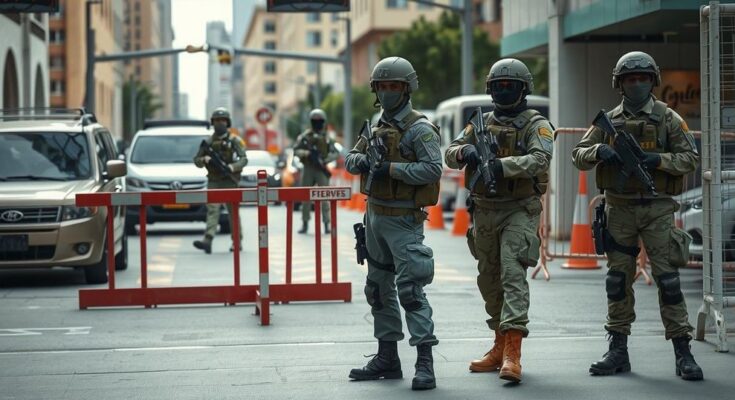Syrian security forces have augmented their presence in Alawite regions following reports of mass civilian killings, totaling 745 victims. Clashes with loyalist gunmen resulted in a broader death toll exceeding 1,000. The community grapples with fears of retaliation stemming from the Assad regime’s history, and religious leaders have called for an end to violence, urging dialogue and peace instead.
Syria’s security forces have intensified their presence in the Alawite stronghold along the Mediterranean coast following alarming reports from a war monitor regarding the killings of nearly 750 Alawite civilians. These incidents are attributed to clashes between the new authorities and loyalist gunmen following the fall of former President Bashar al-Assad, an Alawite himself.
Reports indicate that the Syrian Observatory for Human Rights has documented that 745 Alawite civilians have been executed, with military personnel and pro-government fighters involved in these acts, as well as the looting of their properties. Consequently, the overall number of casualties resulting from the recent violence has risen to 1,018, which includes substantial losses among security personnel and loyalist fighters.
To restore stability, Syrian security forces have been deployed in key coastal areas, including Latakia, Jableh, and Baniyas. Baniyas resident Samir Haidar recounted the murder of his family members by armed groups, confessing that he narrowly escaped death by fleeing his home.
The Defence Ministry’s spokesman claimed control had been reestablished in the affected areas, underscoring that any form of violence or home attacks is strictly prohibited. Compounding the turmoil, schools in Latakia and Tartus have been closed due to deteriorating security conditions, as power outages plague the area due to attacks on infrastructure.
The outbreak of violence was reportedly ignited by the arrest of a suspect in a predominantly Alawite village, although a tentative sense of calm returned following heavy deployments of security forces. Officials reaffirmed their commitment to preventing sedition and acts of revenge against any Syrian population group.
The Alawite heartland remains rife with fears of retaliatory violence stemming from the Assad regime’s brutal history. Some social media reports document horrific accounts of killings within families, emphasizing the ongoing fears within this community. The Syrian Observatory has labeled these recent events multiple ‘massacres,’ which have targeted innocent civilians, including women and children.
Responses to the violence have involved condemnation from religious leaders of Syria’s Christian churches, as well as calls from the Druze community for an end to hostilities. Analysts suggest that the new government faces significant challenges in establishing dialogue with the Alawite population, marked by a reliance on repressive measures and uninformed zealotry against those they perceive as adversaries.
In summary, the situation in Syria’s Alawite heartland is dire, with grave reports of civilian massacres prompting enhanced security measures by the new government. The complexities surrounding the ongoing violence reflect the challenges faced by the authorities in reconciling with disaffected Alawite citizens. As communities reel from psychological and social trauma, acute calls for an end to violence from community leaders highlight a pressing need for peace and dialogue amid ongoing unrest.
Original Source: www.rfi.fr




